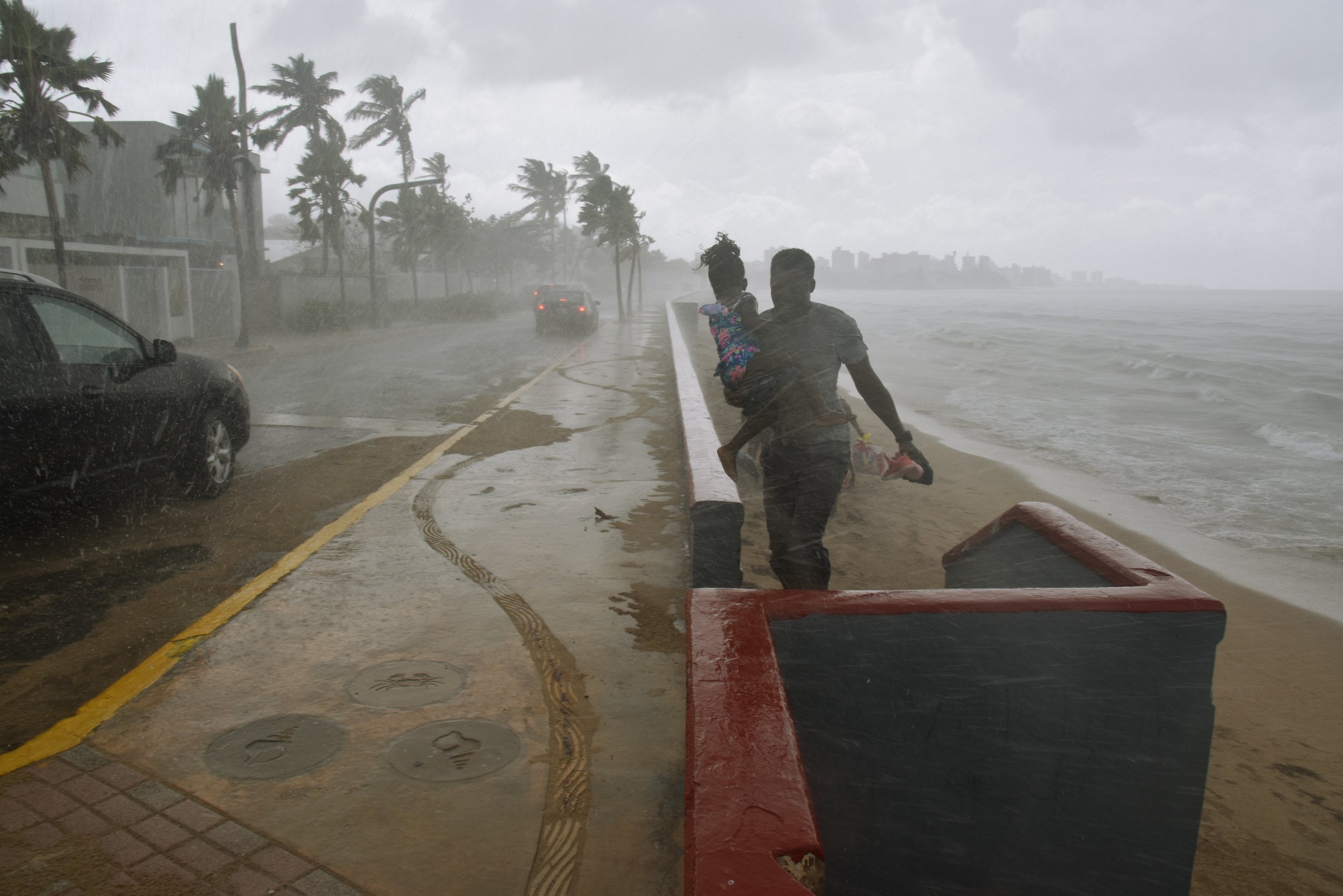
Updated | When multiple natural disasters occur at around the same time, such as the earthquake in Mexico on Tuesday and the arrival of Hurricane Maria in Puerto Rico on Wednesday, people might be tempted to think that the timing is more than a coincidence.
Hurricanes arise due to interactions between the atmosphere and the ocean, whereas earthquakes are caused by the motions of solid earth. But scientists have long searched for a connection between the two types of natural events, which often occur in succession—as was also the case earlier in September, when another earthquake struck Mexico around the same time Hurricane Irma made landfall.
Related: Mexico City earthquake: children dead after school collapses
One reason that earthquakes and hurricanes often seem to happen around the same time is geographic. Many areas that are prone to the severe storms also have seismic activity, as Slate's Brian Palmer pointed out in 2011.
But some scientists have gone further, suggesting that hurricanes can trigger earthquakes, though perhaps not immediatley. For an area that is "prone to earthquakes," says Shimon Wdowinski, an associate professor in the department of earth and environment at Florida International University, "heavy rain can increase the probability of getting earthquakes after the wet storm."
Wdowinski studied that phenomenon in Taiwan, which had experienced both types of events. "In that particular environment, already prone to earthquakes, a very wet typhoon," which is the same as a hurricane, "can induce the landslides, and then the removal of the land that comes with the landslides can actually induce earthquakes," he says. This does not happen right away. "There is sometimes a delay of months or sometimes years," he says.
He has also looked into whether tropical storms that hit Haiti in 2008 caused erosion of land and triggered the major earthquake that country faced in 2010. He says the results there have been inconclusive because of limited data.
Other scientists say have found that the changes to atmospheric pressure caused by hurricanes can also affect earthquakes, causing them to slow down and wreak havoc for greater lengths of time. In a study published in Nature in 2009, Taiwanese researchers claimed that under certain conditions, typhoons in eastern Taiwan had triggered earthquakes that way.
Another expert who believes there could be a link between earthquakes and hurricanes is University of Maryland physicist A. Surjalal Sharma, who says extreme natural events don't exist in isolation. "We have many events which start and end, and most of the events are like that," he says. But for extreme events such as earthquakes and hurricanes, "they have some memory of how they evolved," which is evident by when those events occurred over time.
Though Sharma says the "memory" concept—which he spoke about in a 2012 interview with the American Geophysical Union—pertains mainly to events of the same type, he says the same could be the case across different types, though more study is needed. "The Earth's system as a whole, in which there are hurricanes, floods, earthquakes, space storms, they all form an interconnected system," he says. "So the memory in this system, the entire earth system, will affect the extreme events in this."
Existing research and theories do not prove that the ongoing disasters are related. Wdowinski, from Florida International University, points out that a storm's causing sediment to erode, leading to an earthquake in the same place months or years later, is not the same as what is happening now in Mexico and Puerto Rico. He says the phenomenon he studied takes time and occurs "in certain tectonic environments. It's not everywhere."
Brian Romans, an associate professor in the geosciences department at Virginia Tech, who has written for Wired about Wdowinski's research, agrees. "It's tempting to explore connections between earth system events that occur at nearly the same time and in the same general region," he says by email. "However, the linkage between the atmosphere-ocean processes that lead to hurricanes and the solid earth processes that lead to large-magnitude and damaging earthquakes, if it exists at all, is not well understood." He adds, "I would conclude that these recent and ongoing events are coincidental and not linked by a common mechanism."
The link between the two types of natural disasters and other types is clearer: Earthquakes can trigger mudslides, tsunamis and volcanoes, while hurricanes can cause floods, tornadoes and landslides.
Correction: This article previously incorrectly stated that a major earthquake happened in Mexico on Monday. The 7.1 magnitude earthquake was on Tuesday. This article was also updated to include current affiliation for Shimon Wdowinski.
Uncommon Knowledge
Newsweek is committed to challenging conventional wisdom and finding connections in the search for common ground.
Newsweek is committed to challenging conventional wisdom and finding connections in the search for common ground.
About the writer
Max Kutner is a senior writer at Newsweek, where he covers politics and general interest news. He specializes in stories ... Read more
To read how Newsweek uses AI as a newsroom tool, Click here.








